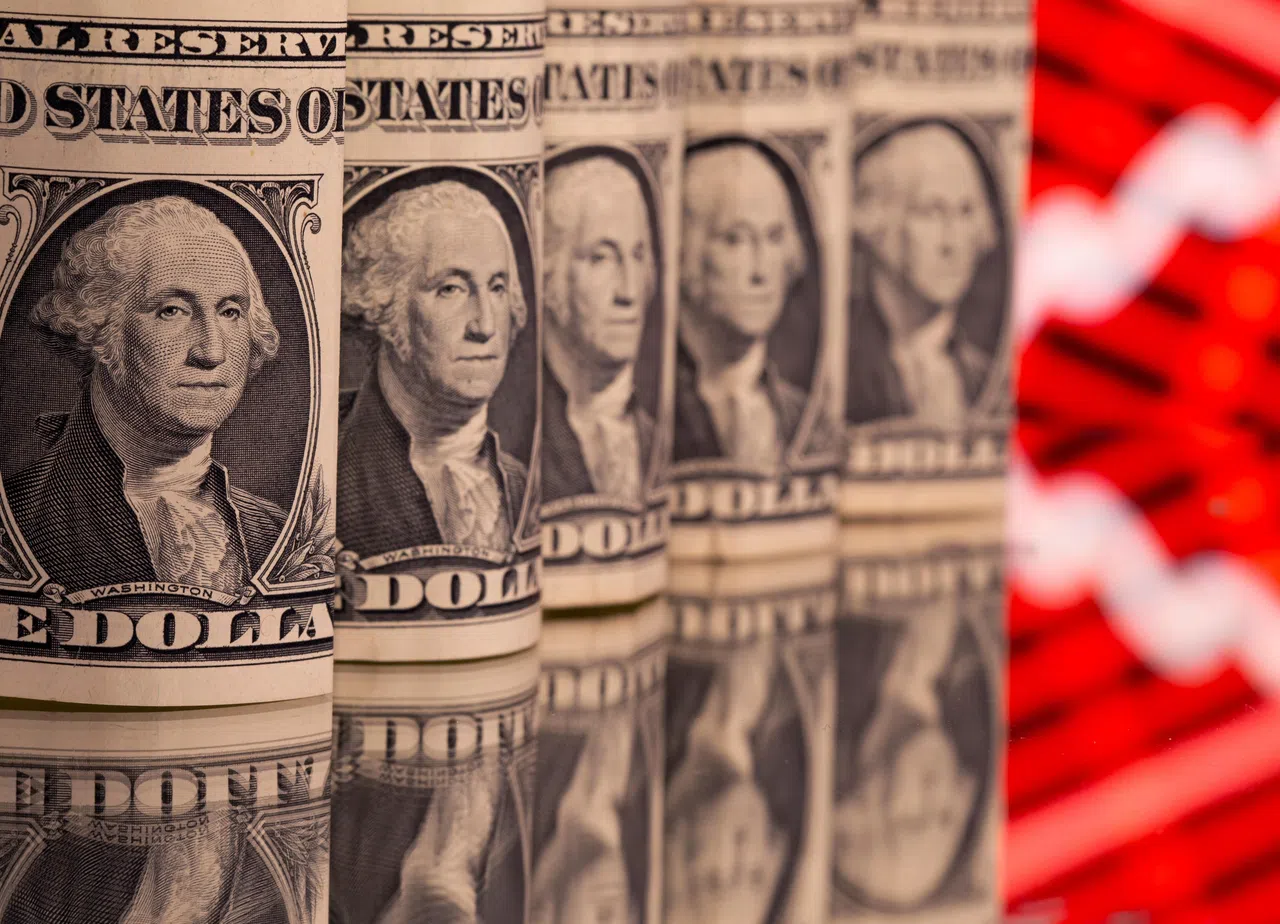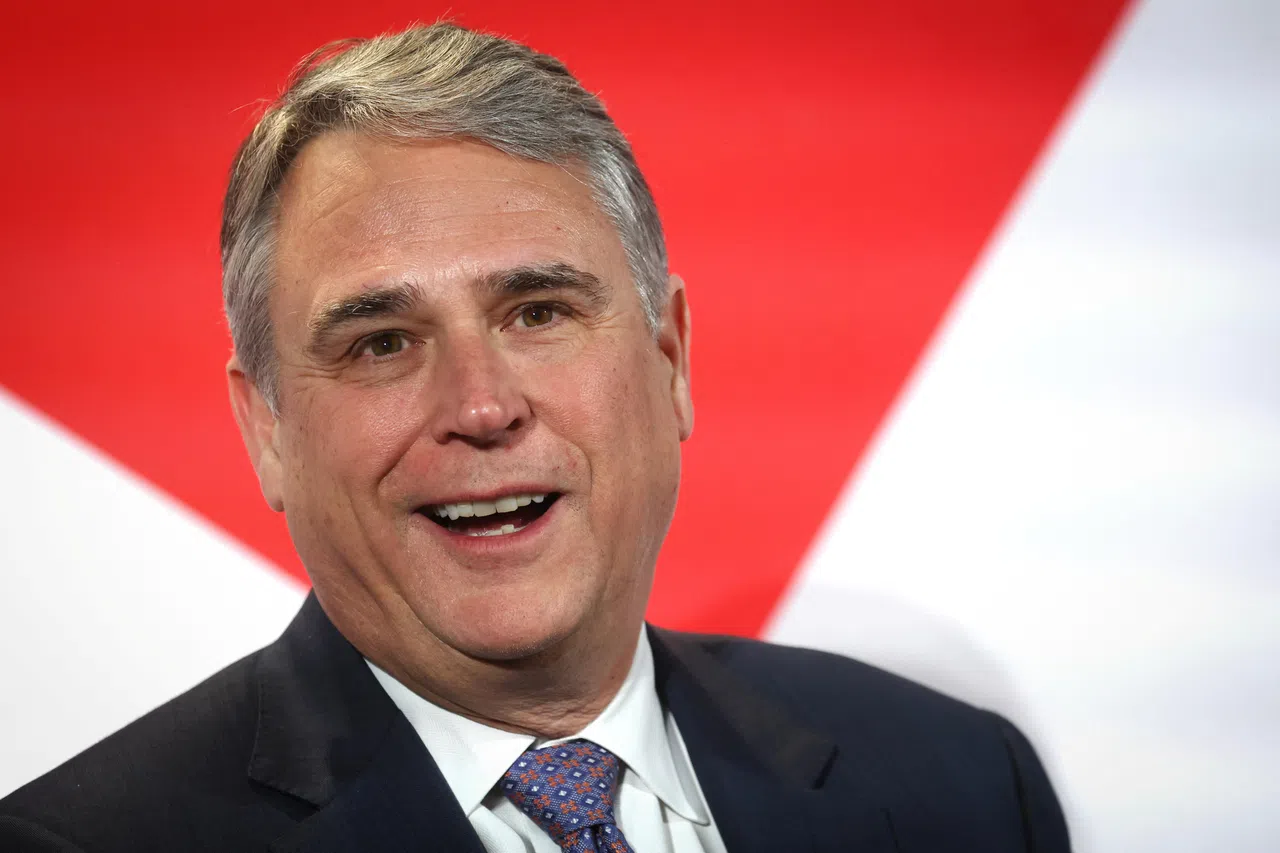The greenback inched higher on Friday (May 10) following a reading on US consumer sentiment as investors sorted through a batch of comments from Federal Reserve officials, with the focus beginning to turn towards key inflation readings next week.
The US dollar pared declines and turned modestly higher after the University of Michigan’s preliminary reading on consumer sentiment came in at 67.4 for May, a six-month low and below the 76 estimate of economists polled by Reuters. In addition, the one-year inflation expectation climbed to 3.5 per cent from 3.2 per cent.
The dollar had weakened on Thursday after a higher-than-expected reading on initial jobless claims fuelled expectations the labour market was loosening, adding to other recent data that indicated the overall economy was slowing.
The dollar index, which measures the greenback against a basket of currencies, gained 0.09 per cent to 105.31, with the euro down 0.08 per cent at US$1.0772. The dollar was on track for its first weekly gain after two straight weeks of declines.
Next week, investors will eye readings on inflation in the form of the consumer price index (CPI) and producer price index as well as retail sales data.
“The CPI, I don’t think it’s going to change people’s views; the price pressure is still elevated, but it’ll be a decline, it will be just a softer year-over-year read,” said Marc Chandler, chief market strategist at Bannockburn Global Forex in New York.
GET BT IN YOUR INBOX DAILY
Start and end each day with the latest news stories and analyses delivered straight to your inbox.
“So it’s not so much the magnitude, but the direction.”
Also supporting the dollar were comments from Dallas Federal Reserve president Lorie Logan, who said it was not clear whether monetary policy was tight enough to bring inflation down to the US central bank’s 2 per cent goal, and it was too soon to be cutting interest rates.
That ran counter to earlier comments from Atlanta Federal Reserve president Raphael Bostic, who said the Fed likely remained on track to cut rates this year, even if the timing and extent of the policy easing was uncertain. In addition, Chicago Federal Reserve president Austan Goolsbee said he believes US monetary policy is “relatively restrictive”.
The comments capped off a week of varying opinions among Fed officials as to whether rates are high enough.
Following last week’s softer-than-expected US payrolls report and a Fed policy announcement, markets have been pricing in about 50 basis points (bps) of cuts this year, with a 62.2 per cent chance for a cut of at least 25 bps in September, according to CME’s FedWatch Tool.
Against the Japanese yen, the dollar strengthened 0.26 per cent to 155.86. It was up about 1.9 per cent on the week against the Japanese currency after it tumbled 3.4 per cent last week, its biggest weekly percentage drop since early December 2022 after two suspected interventions by the Bank of Japan.
Japan Finance Minister Shunichi Suzuki said on Friday the government would take appropriate action on foreign exchange if needed, echoing recent comments from other officials.
Sterling edged up 0.02 per cent to US$1.2525, after earlier reaching US$1.2541, in the wake of data showing Britain’s economy grew by the most in nearly three years in the first quarter of 2024, ending the shallow recession it entered in the second half of last year. Reuters






